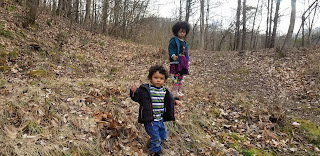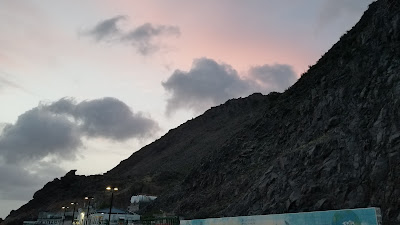Finding Our Way through Research {Home School Tutorials in Creative Writing ~ Leson One}
Welcome, Students, to the exciting world of creative writing! In the beginning, God not only created our planet and everything in it, but He also used words to do so. God has given us the gift of words to fill our lives with truth, wisdom, and beauty. As we use this gift in creative writing, we demonstrate how we are created in God's image as our ideas and imaginations encourage, entertain, and inspire other image bearers like ourselves. Creative writing gives us a glimpse of God's heart as the master storyteller, character creator, and world designer, and so much more. Every day, we can learn and grow in our writing abilities. Our imaginations are wondrous gifts from God to help us in this. However, they need fuel, or they will be like a car stuck in a rut. Research is a tool that fuels our imaginations and inspires us to write.
I imagine you were not expecting me to share with you about the importance of research in creative writing. Maybe a post on the power of the imagination or ten steps to creating a fantasy world, but research? No way! However, I am here to tell you that even creative writing projects sometimes require research. So let's set off together, finding our way through the great, big world of research to the place where we can start writing.
How Do We Know What We Don't Know?
A good place to start is with the stuff we don't know. So, how do we know what we don't know? Like every good adventurer, we must take one step at a time into the unknown. Let's start where we're at. Are we writing a short story on the Pilgrims' voyaging to the New World? Or maybe a poem about the day we were born. We might even be trying our hand at writing a fantasy novel where the main characters fly around like hummingbirds and butterflies.
Well, what do all of these creative writing projects have in common? They all require some degree of research!
We may need to do some historical digging into characters and events that took place during the Pilgrims' sea voyage, or we may want to accurately describe what shipboard life was like for these people.
To write about the day we were born, we will need to find eyewitnesses to interview, like our parents.
As for that fantasy story with the hummingbirds and butterflies, perhaps researching these creatures could add a richness to our story, making our novel stand out as unique.
We need to keep taking one more step after another. Research may seem like a daunting task, but once we get started, the joy of discovery often fuels the journey.
Where Should We Look?
Now that we know that we just need to take that first step into research, we come to the next question—where exactly should we take that step? Should we go to the library? Maybe run some ideas by Google? Or dust off some old textbooks on our shelves? What's important to remember is that we want to find information from experts in the field that we are researching. So, when it comes to exploring the Pilgrims' voyage to the New World, history books written by authors who have been trained in that field of learning could provide helpful insight. We might also want to consider the author's worldview as we study their perspective on the subject to understand their point of view.
However, if we are writing a poem about the day we were born, then the best experts on this subject would be our mom and dad. We could also use hospital records that detail our birth weight, along with other interesting bits of information.
There are numerous excellent science resources available for studying hummingbirds and butterflies, which could help us write our fantasy novel. We could watch a nature documentary or find scholarly articles written about these creatures. Studying pictures and videos will provide us with visual insight to help us describe the creatures we are creating in our story.
So, let's pull out our phone, tablet, or laptop—maybe even take a trip to the library or make a cup of coffee for our mom or dad—and take that first step toward an expert in the field we are studying for our creative writing project.
How Do We Know We're on the Right Track?
Now, imagine we have already taken the plunge and started our adventure into creative writing research. We took the first step toward an expert in the field we are studying. How do we know that we're on the right track? As we ensure that our sources are credible, we should also verify the credibility of the sources they cite. How are they getting their information? This can be a win-win for us, as investigating the sources these experts use may reveal new sources we hadn't considered before.
How do we do this? Well, we need to check the end of a book, article, or the credits of a documentary, and we will find the works cited section or bibliography of the particular resource we are researching. What makes the sources they use credible? Are they scholarly? Are they backed up by peer reviews? Are they citing experts in the field as well? If we do a little digging, we will find out a lot about how and where the expert gathered his or her information. This will help us determine whether to trust this person. We should take one step at a time when reviewing the credibility of our sources, as we do not want to become overwhelmed or burned out before we have even begun writing.
How Do We Use What We Find?
So we have taken the first step and ensured that our sources are credible. Now what? First, we need to organize our research in a way that we can use for our writing project. We could create a Word document and make an annotated bibliography with the information that stands out to us. Annotated bibliography is just a fancy way of saying a list of our sources with a summary of how it is helpful in our particular project. We could also do this by hand in a notebook, but that may prove to be time-consuming.
Now we need to decide how to use what we've found. Do we want to cite the information directly? Perhaps if we were writing a paper or a nonfiction book, we would consider this the most effective approach. However, in creative writing, when we are writing a story or a poem, a better method may be simply digesting the information and using it in the overall message of our writing process, and making a bibliography page at the end of our work. This allows our story or poem to flow without the interruption of quoting another work directly.
The information we find as we research gives us a foundation to build our story on and points us in the direction we should go. It helps us determine the appropriate vocabulary, describe specific scenes, and decide which aspects of the setting to include, among other things. Research actually helps our creative writing stand out in creative ways, as it enables us to write about things we couldn't have before due to our lack of knowledge.
Where Do We Find More Information?
Now that we know all this, where should we look for more information? One great place to start is with our local public library. We could visit in person or check their website for a wide range of information. Every library is a little bit different, but my own library has genealogy records, newspaper databases, public records, scholarly article databases, and a vast collection of books available for research.
We can also use the people and places around us to gain first-hand knowledge of specific subjects. Our research can go as high or wide as we want it to!
So take that first step today, and decide to do some creative writing that requires research to fuel your imagination and enrich the content of your story. As image bearers, the depth and excellence of our work will undeniably be used to impact others in tangible ways and glorify God in the process.
Thanks for joining me on this journey today!
Held by Grace,
Sara-Grace Daile





Comments
Post a Comment